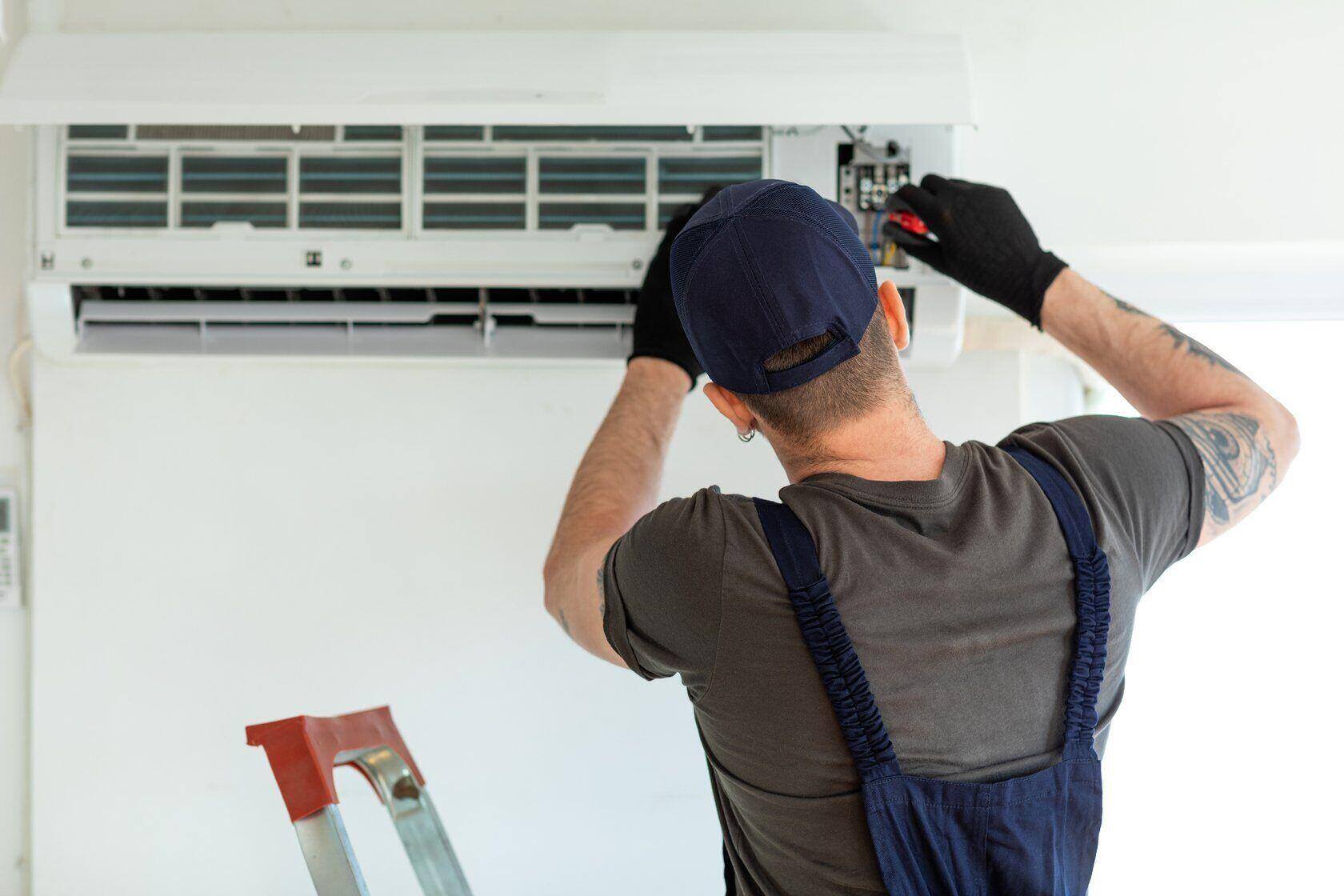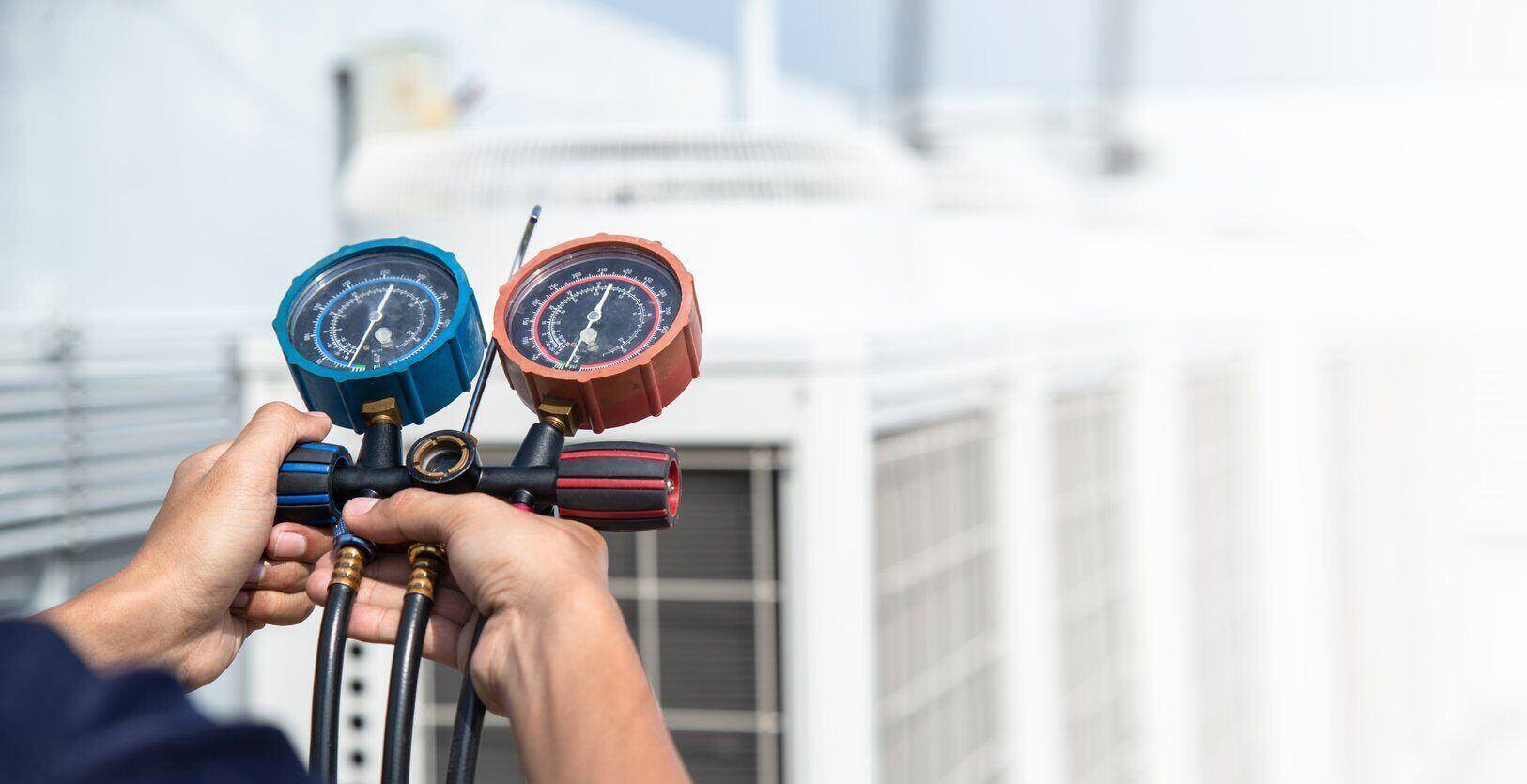Is my HVAC covered by my home warranty?
Home warranties can possibly provide peace of mind by potentially covering costly repairs or replacements.
Carefully review the terms and conditions of any home warranty to understand what is and isn't covered, including potential exclusions related to HVAC systems.
Factors like your home's age, its systems and appliances, and your budget should be considered when choosing a home warranty.
Do home warranties cover HVAC?
The answer is yes; home warranties can cover HVAC, but it depends on the terms of your plan. This is one of the many reasons why paying attention to the plan you select when choosing a home warranty company is essential.
Before we discuss the specifics of a warranty plan, let's define a home warranty.
A home warranty is a contract that provides coverage that helps with the costs of repairs and replacements and allows access to network service providers. Your appliances must have mechanical failure from normal wear and tear to be considered for coverage. Some home warranty companies offer plans that feature only a few home appliances and systems and some offer varying add-on warranty protection.
Most home warranty companies cover HVAC systems. However, some elements of the heating and cooling systems may not be included in your coverage and these will be outlined in your contract terms and conditions.
HVAC Repairs: Which parts are typically covered
Most home warranties cover the components of a central air conditioning system and a heating system, like forced air (gas, electric or oil), wall heaters and more. This is excellent news because having a home warranty plan can save yourself a lot of stress and aggravation while saving money. Imagine having a broken A/C system in the middle of summer. Instead of spending time on a strenuous DIY project to get some cool and comfort, you can contact your home warranty company and arrange for a service technician to visit your home and check out your A/C. Whether the issue is with your A/C, furnace or any other part of your HVAC, the technician will do their best to repair it as long as it's covered under your home warranty plan.
How much do HVAC repairs cost without a home warranty?
HVAC repair costs $100 to $600, averaging $350. Remember that the repair cost is usually determined by which part is needed to get your HVAC back up and running. While replacing some components can cost up to $2,000, parts for an A/C or furnace can cost well over $5,000.
What about HVAC replacement?
While a home warranty plan will replace an HVAC system, every step will be taken to repair it first. This is a good approach since a repair may be quicker than filing a claim and waiting for a replacement unit. If it's decided that your HVAC system is beyond repair, you'll quickly understand one of the reasons home warranty plans provide homeowners with added peace of mind. Do you know how much it costs to replace an A/C system?
HomeAdvisor says the average replacement cost for air-conditioning systems is $7,000, with a typical range of $5,000 to $10,000. Regardless of your financial situation, this is a lot of money to come up with unexpectedly.

How do you know if your home warranty plan covers HVAC?
Sometimes, getting the correct answers is as simple as asking questions. When you sign up with a home warranty company, you should be able to contact their customer service to get clarification on anything you need. Most home warranty companies are accessible via telephone, email or even an app with a chat feature. You can also carefully review the details of your home warranty plan. If you need a copy, don't hesitate to ask your home warranty company for one.
How much does a new HVAC system cost?

According to Modernize, a new HVAC at retail costs $6,224 to a maximum average of $11,434, including installing a new central AC unit and gas furnace combo, along with the typical labor work needed to install the new unit(s). There's no way to predict when your air conditioning or heating system will suddenly stop working and these hefty costs can set you back. This is the significant benefit of having a home warranty plan. When your HVAC system breaks down, you'll know exactly who to call for help while avoiding major out-of-pocket expenses.
How can you find a home warranty plan that covers HVAC systems?
As home warranty plans become more popular, there are more options for homeowners to choose from. Like everything else, shopping around and comparing companies and plans is probably smart. To find a home warranty plan that covers HVAC systems, choose a proven, reputable company and just ask all of the right questions before committing to a contract.
When it comes to purchasing a home warranty plan, there are some things you should seek in a home warranty company:
- Experience: An experienced home warranty company will be able to show you a track record that you can lean on. Don't forget to read customer reviews for feedback.
- Options: Always try to find a home warranty company that offers various plans. This will allow you to stay within your budget and avoid paying for things you don't need.
- Industry-standard: The best home warranty companies will be recognized by relevant organizations in their industry. Do your research to avoid making a mistake.
Who installs HVAC systems?
Another benefit of having a home warranty plan is that you won't have to worry about installing an HVAC system. When you hire the right company, you'll have a network of qualified technicians to do the hard, complicated work for you. Typically, HVAC systems are installed by qualified HVAC technicians. While many DIY projects can be fun, this isn't usually one of them. Installing an HVAC system takes time and involves many intricacies. From turning off your circuit breaker to adding filters and ductwork, this can be a particularly complicated task.

What should you know about HVAC and manufacturer warranties?
When it comes to HVAC warranties, there are a few things you need to know. Let's start with the good news. You'll be thrilled to know that HVAC manufacturer or extended warranties are typically pretty good. Most manufacturers offer either a 5-year or a 10-year warranty on an HVAC system.
Secondly, it's important to note that there are two kinds of HVAC manufacturer warranties.
- On one hand, there's an equipment warranty. This kind of warranty covers failures and malfunctions. So if something stops working, you'll get the part replaced for free.
- On the other hand, there's a labor warranty commonly associated with HVAC systems. This warranty is provided by the company that installs your HVAC system. With the proper installation, your heating and cooling systems can function properly for years.
When it comes to deciding on what brand of HVAC system to go with, you'll discover that most of the major brands will offer a similar 5-10 year manufacturer warranty option. In some cases, registering your system could extend your warranty plan. So, make sure that your system is registered. This includes popular brands such as Trane, Rheem and Lennox.
How should you maintain your HVAC system?
According to a recent survey, only 30% of homeowners schedule preventative maintenance, while a mere 27% regularly clean their outdoor condensing unit, and only 23% consistently check blades and belts. If you're not doing your part to take care of your HVAC, you may experience problems that shorten the lifespan of your units.
Here are some helpful maintenance tips:
- Hire a professional: No matter how much we try to do it ourselves, it's always best to get a professional tech in for maintenance.
- Change your filters: Changing your HVAC filters helps improve the air quality in your home. It also gets rid of dust and prevents allergens. Change filters every 30-45 days.
- Perform a visual inspection: Are there lights on that shouldn't be? Do you need new batteries for the thermostat? Does something look broken or out of place? A visual inspection of your HVAC systems can uncover potential issues that may be an easy fix.
- Keep the area clean: Sometimes, helping your HVAC system run properly is as simple as removing all of the old boxes and household items you have stacked around it. Your HVAC system is not a storage area. By eliminating clutter, you can prevent fire hazards, make maintenance more accessible and improve the appearance of your home's appearance.
- Maintain the right temperature: Regulating the temperature in your home goes a long way in maintaining a healthy HVAC system. We highly recommend installing a programmable thermostat. This will allow you to control when the system is running when you're not at home, saving energy and reducing wear and tear.
- Add a carbon monoxide detector: An HVAC system relies on a gas refrigerant. In the event of a leak, a carbon monoxide detector can be a lifesaver (literally).
Cinch Home Services offers home warranty plans* that are affordable for any budget and can be tailored to fit your needs. We provide excellent customer service when you need to place a claim. Contact Cinch Home Services for your quote today!
*The product being offered is a service contract and is separate and distinct from any product or service warranty which may be provided by the home builder or manufacturer.
Common HVAC Questions

How much does a 2-zone HVAC system cost?
According to homeguide.com, the average cost is $1,700 to $4,500.
What is a heat pump HVAC?
A heat unit or pump is an HVAC system that moves heat from one place to another using electricity.
How do you tell if your HVAC has a heat pump?
You can check the outdoor unit and look for a metal plate that should be labeled "heat pump." Otherwise, write down the model number and do some research online.
Do all HVAC systems have heat pumps?
No. Some have heat pumps and some have a conventional system.
What is a split system HVAC?
This is a heating or cooling system that has both indoor and outdoor units.
What is a mini split HVAC system?
Mini-split systems are used in homes without existing ductwork. They are efficient because they only generate the amount of cooling that's needed.
What is static pressure in HVAC?
This is a term used to describe the resistance to airflow in HVAC units.
How to diagnose HVAC problems?
Complete a visual inspection of the HVAC unit or hire a professional to check it out.
How much do people charge to diagnose HVAC problems?
Usually between $75 and $200.
How do you clean HVAC coils?
Cleaning HVAC coils is a multi-step process. To be safe, turn off your thermostat and circuit breaker. Next, remove the access panel and find the coils. Use a soft brush to remove dust and debris.
What are dampers in HVAC?
A plate that regulates airflow to specific areas of the home.
What is a Variable Refrigerant Flow (VRF) HVAC?
Variable Refrigerant Flow is a system that provides cooling and heating to multiple zones.
What is superheat in HVAC?
The amount of heat added to vapor above boiling point. This shows the amount of heat your Freon has gathered.
Where is my HVAC filter?
The filter is located inside the access panel between the return duct and the air handler.
What is a plenum HVAC?
A plenum is an air distribution box designed for forced-air systems in residential homes and commercial businesses. It is part of the ductwork but far different from an air duct. These important boxes handle air as it enters the ducts and help to recirculate it within a system.
What is a sequencer HVAC?
The sequencer helps regulate the system and prevents overheating.
What is RTU in HVAC?
An RTU is a Rooftop Unit where all components are packaged on a roof.
Does HVAC use gas or electricity?
Both. Electric furnaces are more efficient.
Do I need a license to buy HVAC equipment?
No, you do not.
What to look for in an HVAC warranty company
When it comes to purchasing a home warranty contract, there are some things you shouldn’t overlook:
- Keep receipts and records of your regular maintenance so you can prove that your appliances are breaking down due to wear and tear rather than negligence.
- There may be a waiting period for your coverage to begin. You may have to wait 30–45 days before your home warranty is valid.
Cinch Home Services offers home warranty plans that are affordable for any budget and can be tailored to fit your needs. We offer excellent customer service when you need to place a claim. Contact Cinch Home Services for your quote today!
* The product being offered is a service contract and is separate and distinct from any product or service warranty which may be provided by the home builder or manufacturer.
The information in this blog library is intended to provide general guidance on home warranties, and on the proper maintenance and care of systems and appliances in the home. Not all of the topics mentioned are covered by our home warranty or maintenance plans. Please review your home warranty contract carefully to understand your coverage.
Our blog library may link to third-party sites that offer products, services, coaches, consultants, and/or experts. Any such link is provided for reference only and not intended as an endorsement or statement that the information provided by the other party is accurate. We are not compensated for any products or services purchased from these third-party links.
Is your HVAC system covered by your home warranty? Keep reading as we cover the ins and outs of home warranties.




